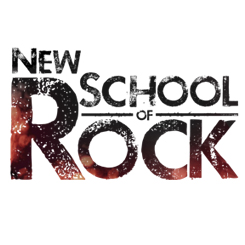ALEX SKOLNICK TRIO Interview
- Details
- Category: Interviews
- Published on Saturday, 03 June 2017 23:59
- Written by Richman

There are two hearts pounding in ALEX SKOLNICK’s chest. Famous for his work with US-American Metal band TESTAMENT, he is also an accomplished jazz guitarist and records and tours with his trio formation, the ALEX SKOLNICK JAZZ TRIO on a regular basis. We caught up with the guitarist of the Bay-Area Thrashers to talk about his trio performances in Vienna in March earlier this year, and wanted to learn more about Alex’s love for the jazz guitar, his practice and transcription routines, as well as his time as a student of JOE SATRIANI.
Born in 1968, Alex was raised in Berkeley, California, by a 'non-traditional' Jewish family, and picked up playing the guitar when he was nine years old. Alex was one of few fortunate guitarists, among legends as STEVE VAI or KIRK HAMMETT, who studied under Satriani to achieve fame. GuitarMania met with Alex at the Reigen club in Vienna to discuss his trio performances with Nathan Peck (upright bass) and Matt Zebroski (drums) known for their inventive jazz take on Hard Rock "standards".
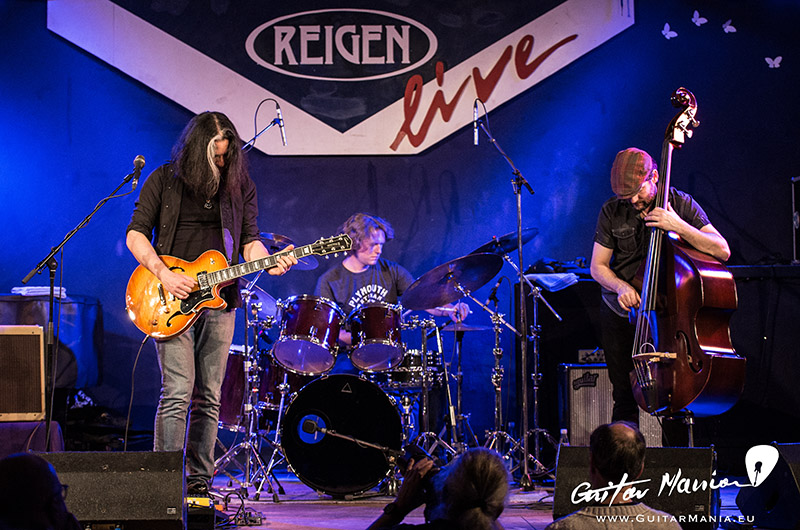
Alex, welcome to Vienna.
Thank you.
It’s good to have you here with the trio formation again.
It’s good to be here, yeah.
How was last night’s concert?
Really good. It was in Frauenthal (Blue Garage in Germany). It’s so fun to play at these places because, these are towns that you don’t often get to on the bigger tours but that there is a big music and arts community and people come from all over.
Mick (the tourmanager) told us that your crowds are getting bigger and bigger.
Yeah, it’s exciting. It’s almost like a rebirth of this project.
Can you tell us how you prepared for the tour?
You know, these guys I play with, Matt and Nathan, they are great musicians and I have to be on my toes because they’re great listeners. I practice as much as I ever have, if not more, and as long as I do a good review not just of the music we play but I always try to learn something new. Like the music I am transcribing.
What are you transcribing at the moment?
Right now I’m transcribing a solo by JOHN SCOFIELD I looked at a long time ago and I am coming back to play an album with Joe Henderson called “So Near, So Far”. The tune is “Swing Spring”. It’s Rhythm changes.
A great album.
It’s a fantastic album. And some of my favorite playing of his even though I love the albums he does as a leader too.
JOHN SCOFIELD played in Vienna last night.
Oh, that’s right? I didn’t know.
How do you go about transcribing? For instance, do you use a special device to slow down the speed or how do you go about that?
Usually not. Usually, I just listen repeatedly. Sometimes I have to try a lick or a pattern a few different ways before it starts to sound like if it’s fast. I’ve done ear training which helps a lot. So I am usually pretty good at recognizing intervals. But if it’s really fast, sometimes it helps to slow it down. I have a couple of different devices that do that. But I don’t need to do it very often. I did a lecture on “Eruption” by Van Halen a couple of years ago. I had to nail that and to really get every note of that right, there are a couple of parts I had to record and slow down.
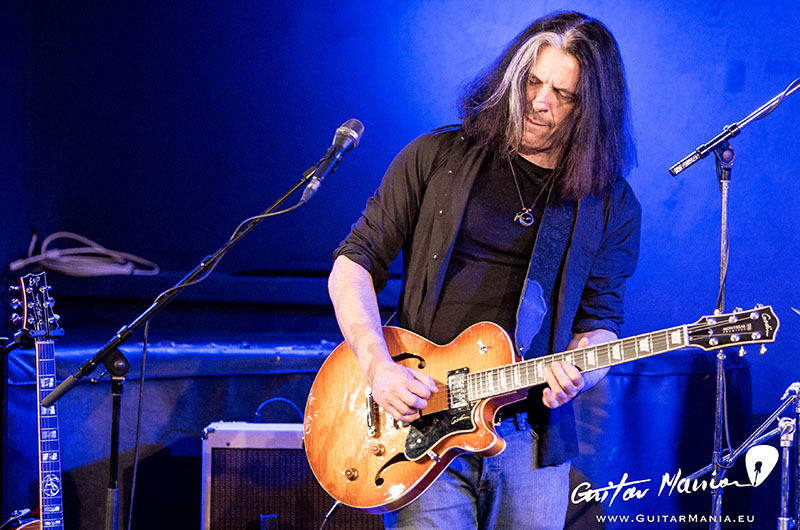
How long does it take you on average to transcribe a complex track like “Eruption”?
It depends. It doesn’t take me long to do a chorus. I could do, you know, a chorus which is say 32 bars long over the course of one practice session, maybe an hour or two depending on how hard it is. But if it’s a longer, like that of JOHN SCOFIELD’s with it’s many choruses, that takes a long time. Just to be able to play them all together, that’s going to take several days at least sometimes. Sometimes longer.
Would you say that John has been a big influence on your style of playing?
Absolutely. I enjoy listening to him, not just as a guitar player. The music of my favorite guitar players is not just for guitarists. John Scofield has attitude and elegance at the same time.
I personally find that he has great ideas. One of his strategies is to turn some of his licks into heads and themes of tunes so he doesn’t use them too often (laughs).
Oh, is that right? Well, that makes sense. Yeah, definitely it makes sense and it’s very musically interesting. He is also not afraid to really dig in. He is not afraid to be emotional or putting a lot of energy into a note. Sometimes, and don’t get me wrong, I love a lot of jazz guitar that is just mellow, a lot of classic jazz guitar I think like Tal Farlow and stuff like that and it’s wonderful. But Scofield, you can tell he is not afraid to sneak a little bit Funk and Rock into it.
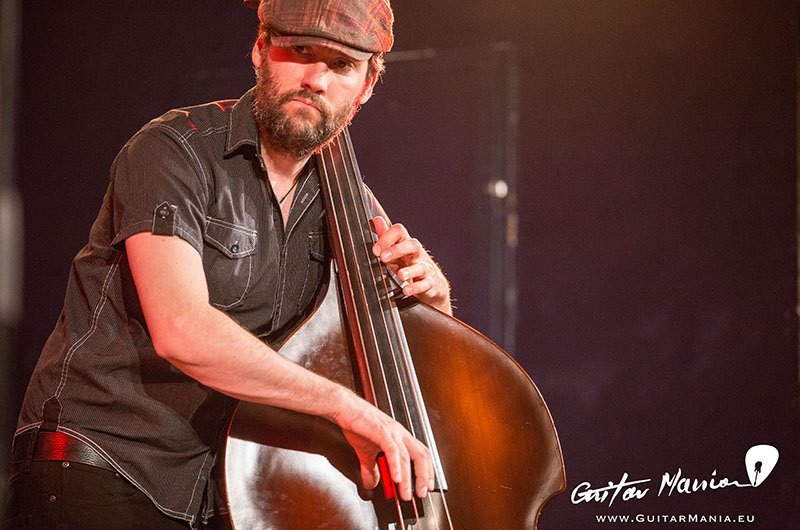
And in terms of modern guitar players who would you say have influenced you most in your jazz style?
Definitely some saxophone players. The first one I really got into was MICHAEL BRECKER. Even though I know a lot of his ideas were inspired by JOHN COLTRANE, and actually I discovered John Coltrane first, but it was so advanced. It took me a while before I could sort of learn his stuff. And I first heard Brecker doing some very early work, you know, it was with John Scofield both of them playing for Chet Baker on an album called “You Can’t Go Home Again”.
Also playing over HERBIE HANCOCK’s “Chameleon”, the arrangement of “”Love For Sale”, was very influential as well. I always felt there was something special about CHICK COREA that reminded me of Flamenco guitar. I then read later that that’s a big influence of his, and he has a big Spanish connection, and even done an album called “My Spanish Heart”, with “Spain” obviously being one of his most famous compositions.
Are there particular tunes or compositions that you would recommend studying when interested in jazz?
Well, yeah, it definitely depends on what level you are.
Let’s start with the beginners’ level.
When you’re beginning, it is very easy to get overwhelmed. So, I would actually stay away from transcribing stuff like say Scofield, Chick Corea, Metheny, Brecker, you know, Herbie Hancock. Listen to it for sure, but if you are just getting into jazz it will throw you for a loop. But good stuff to check out is a player like Charlie Christian. It’s very early Jazz, but early Rock and Roll came a little bit later and there are some connections, I mean, I think a lot of the early Rock and Roll was inspired by the early Swing, and Charlie Christian was this pioneer to Swing, but it’s very relatable and it’s not over-the-top complex. Getting the rhythmic feel of what he did is what is very important, too. It’s easy to lose focus on time, and focus too much on scales and patterns.
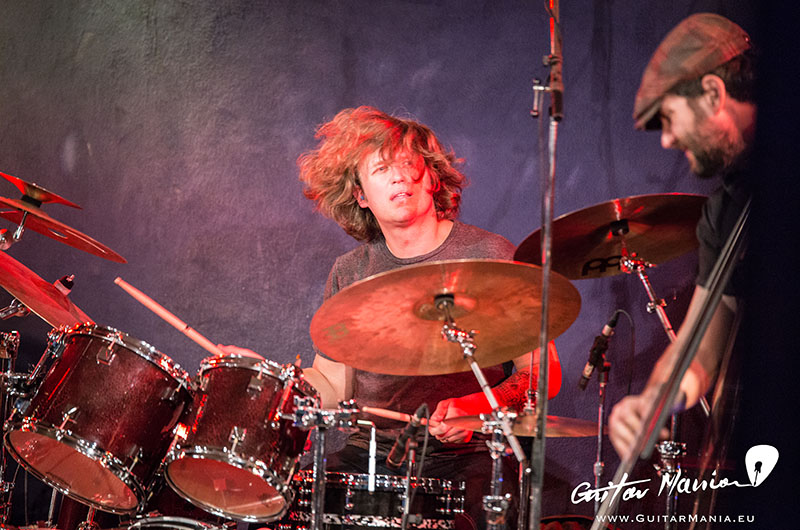
That’s a very good point you mentioned: timing and rhythm playing is an often overlooked part when studying an instrument.
I am wrestling with that all the time.
Can you recommend a practice on how to improve that aspect of one’s playing?
I mean, there are a few things. I think if I could do it all over, I would probably play drums or percussion on the side. And just really get that together because I think you notice a difference when somebody can play drums or percussion. AL DI MEOLA, for instance, is a great example. I’ve seen shows of his where he’ll get behind the timbales and can actually do really well as timbale player. EDDIE VAN HALEN started out on drums and he switched instruments with his brother, it’s the famous tale, which is true.
I really focus on the rhythm mentally and try to lock into it. I sometimes tell myself syllables or phrases that sort of help me keep the rhythm. For example, there are some Indian sounds that come from Indian percussion and that are used by a lot of musicians.
So for example, ta-ki-ta, right, for three – ta-ki-ta, ta-ki-ta -- so if I’m playing in three, ta-ki-ta, ta-ki-ta-ta, it kind of helps me keep track of the rhythm. Four is ta -- like two is ta-ka, four is ta-ka-di-mi -- so I might say those to myself ta-ka-di-mi, ta-ka-di-mi.
And then when I play phrases, I try to limit it to phrases that are really locked into the grove. I am working on this all the time and I think I am getting better and it’s incredibly important. I have had a few different teachers, jazz teachers at one time that have sort of taught me more or less the same thing and it takes a lot of humility to do that because there are many of us who can shred a lot of notes very fast, and, let’s be honest with ourselves, face problems with rhythm. (We should) only let out ideas that are locked into the groove. Well, it limits things considerably and suddenly you realize, okay, you have to work a lot harder and play a lot less.
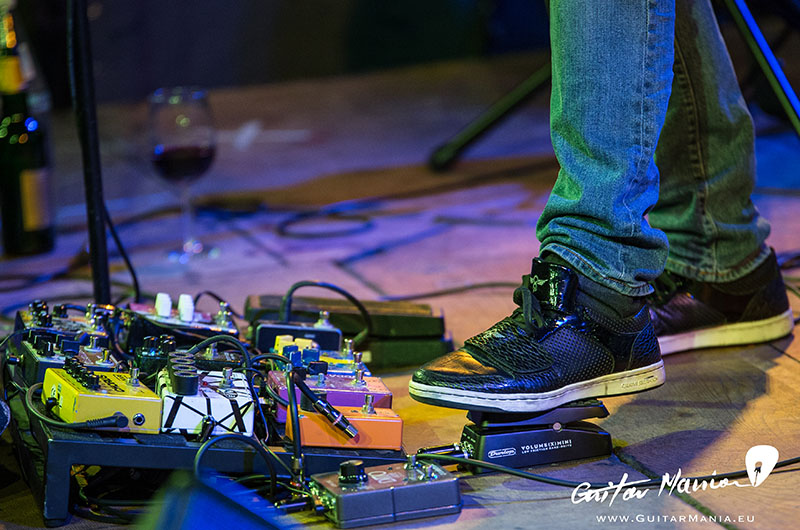
Is it correct to say that the work that you are doing with TESTAMENT is more or less worked out. You know what you are going to play live, for instance, but there is a much bigger improvisational element with your trio performances.
Oh, absolutely.
In your improvisational approach during the trio performances - how much have you worked out sort of lines, licks, intervals and stuff? Is there a particular approach that you have?
Sure. I mean, they are completely different worlds, they’re very different types of performing. If I do a performance with TESTAMENT, yes, I generally know what I’m going to play. I allow myself moments to improvise. I allow myself little moments of freedom. I might decide, there may be a song where I know I’m going to be in a certain position on the neck. And I know I’m going to be doing a certain bluesy type of phrase but they are slightly different, but they’re recognizable and they are not so different that fans ever complain saying that he is changing the solos around. No, they recognize the solos, but I manage to sneak in little things.
But, yeah the idea is to generally have the same type of performance and be very close (to the original), whereas with a jazz performance, you want things to be different. Even if you have a very good performance and you play an improvised solo that you are happy with and your band members are happy with, if it’s exactly the same the next night, it’s a failure because they don’t want to play the same. Nobody wants to play the exact same thing again. That said, there are sometimes ideas that are practiced in advance that you can fall back on. I always try to write at least a chorus of any solo for any improvised tune I am playing. I want to at least have a composed idea in mind just to fall back.
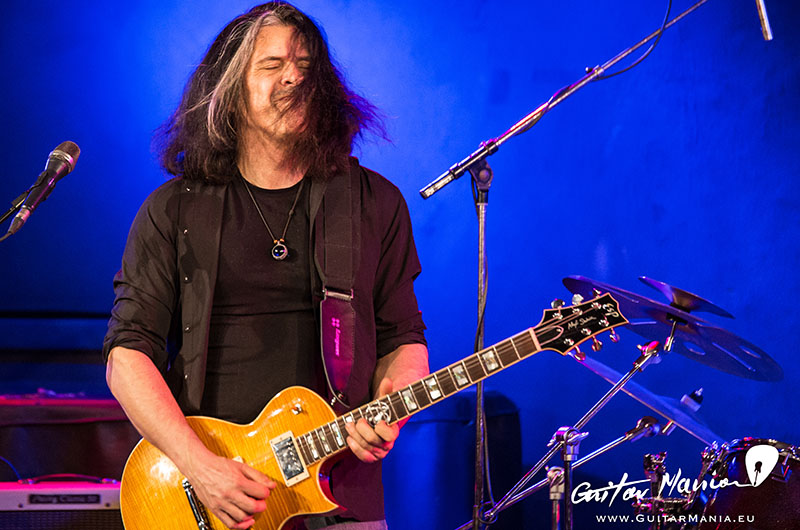
Presumably the way you play is also affected by the way the audience reacts to your performance on the night of the concert?
I think it’s affected by the audience (indeed). Yeah, if it’s a very active audience that is just actively (engaged) then yeah, you’re going to play a little different. You might be a little more energetic upfront. If it’s a very introspective audience, more on the listening side of things, more quiet, then that’s going to cause you play differently. And how your band mates play, that affects the overall performance as well.
Going back to your formative years, you told us before we started the interview, that you did a workshop with Joe Satriani last year. Can you tell us a bit about that?
Absolutely. It was like coming full circle because he was my first serious teacher. When I was very young, you know.
How old were you?
I was 14 years old.
You have been very fortunate to have Joe Satriani as your guitar teacher.
Yeah, well, it was really an example of making the right decision and not listening to everybody else. Because he wasn’t Joe Satriani, he didn’t have this big name back then. He was just this guitar teacher that was very serious and that students were afraid of.
Really?
Oh, yes.
Afraid? Why?
Because he took the lessons very seriously and if you didn’t, well you have to keep in mind that this was in Berkeley, California, and the work ethics there is a little different (laughs). It’s not New York or London or Tokyo. It’s a slow pace, people go at their own pace and he would have students that wouldn’t last more than a few lessons. He was trying to prepare musicians for the real world.
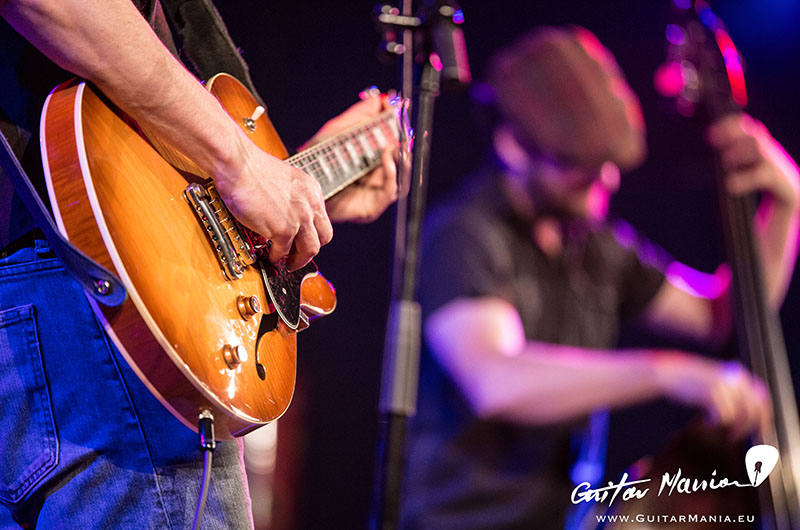
How would a lesson with JOE SATRIANI look like?
They were great. It was in a tiny room, it was like you and him and he’d listen to you play and he’d make some suggestions and you know, you play together. He was amazing. It was great hearing him on his instrument. I had never heard a guitar played like that before. Some of the people I knew said, oh, you don’t want to study with him because he is too serious and he is too intense, but in fact he was actually the best.
Taking lessons with him was the best thing I could have done. It was really good to do that and then I was very honored last year when he did his G4 Experience. And he picked a few guitar players to bring in. It was a week of teaching alongside my old teacher, JOE SATRIANI, plus ERIC JOHNSON and MIKE KENEALLY and then for a couple of days STEVE VAI.
It doesn’t get better than this (laughs).
Yeah, that was really amazing.
Thanks for these great insights into taking lessons with JOE SATRIANI. I meant to ask you, do you play another instrument besides the guitar?
I play a little bit of piano.
If you were to give one piece of advice to young musicians who want to make a living out of being a professional musician what would that be?
There is so much advice I could give them, so much advice, for instance that you should go with your instincts and don’t listen to what everybody else says and consider what the magazines say and who you should be listening to and so forth. I feel that I have been very fortunate in my career.
I don’t think anybody else could have had my career. I have done metal bands, I have toured with Slayer, I have worked with the likes of Dennis Chambers and Chad Wackerman. I am playing in some great jazz clubs. So I am not complaining, but you know there are always the musicians that get a lot of recognition that you see and maybe it’s because they are connected with a group that’s sold a million or so records. Who knows, maybe it’s timing, who knows what it is. And sometimes that player or players you’re seeing and they’re everywhere and you might think, oh I need to be like that. Well, no, there is only that person. You can’t be that person. You have to be you.
Yourself?
Yes.
Embrace your individuality.
Absolutely, absolutely.
Thank you so much, Alex.
Thank you.
Please also check out our video where Alex shows us the guitars he uses for his trio performances and explains the signal chain of his live rig. Interview conducted at the Reigen Club in Vienna on 13 March 2017. Thanks go to Jeff Aug (Maximum Booking), Tourmanager Mik, as well as the people at the Reigen Club.
For more information, please refer to http://alexskolnick.com/
Transcription by Herm.
All images © Richman




